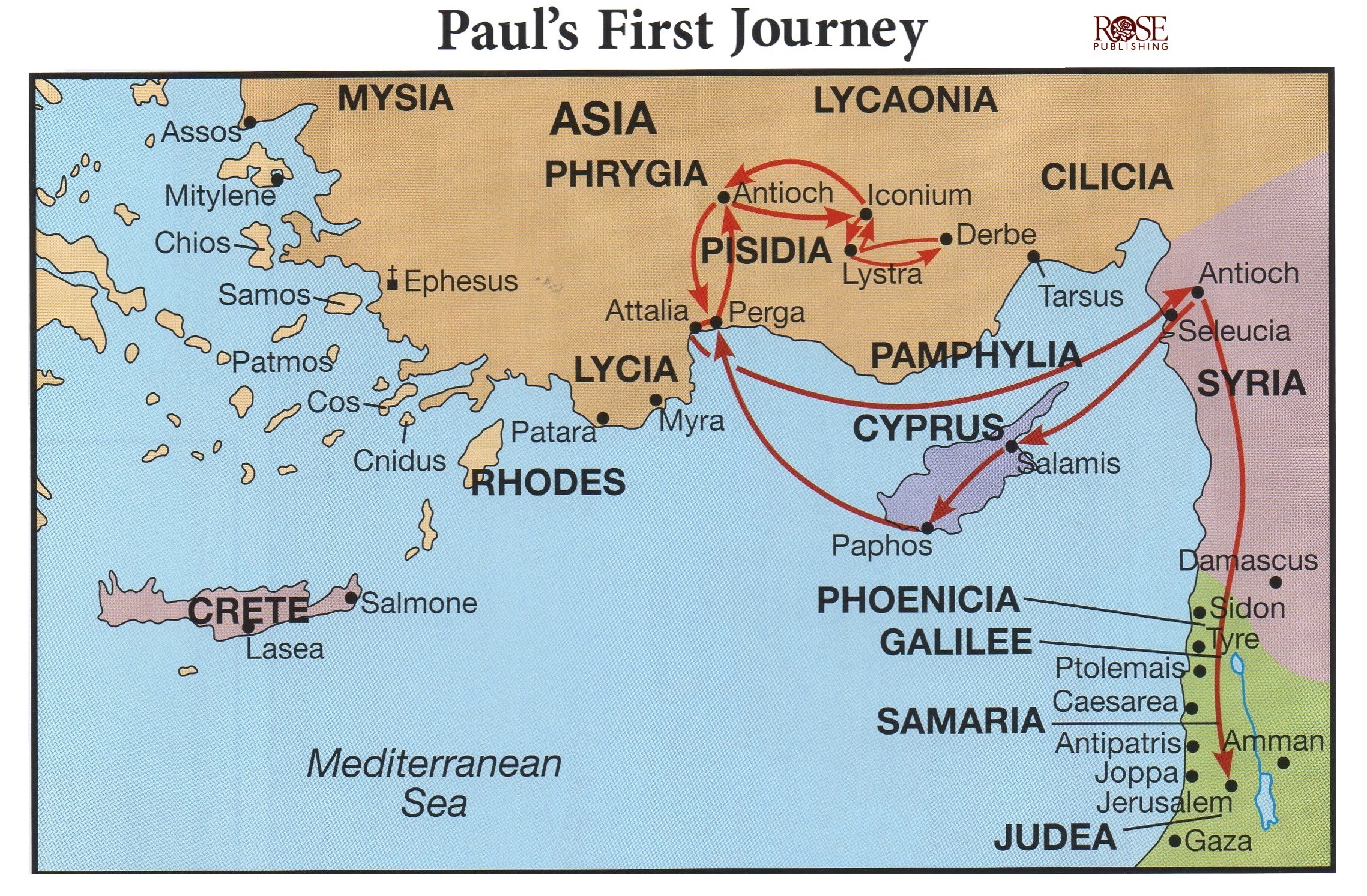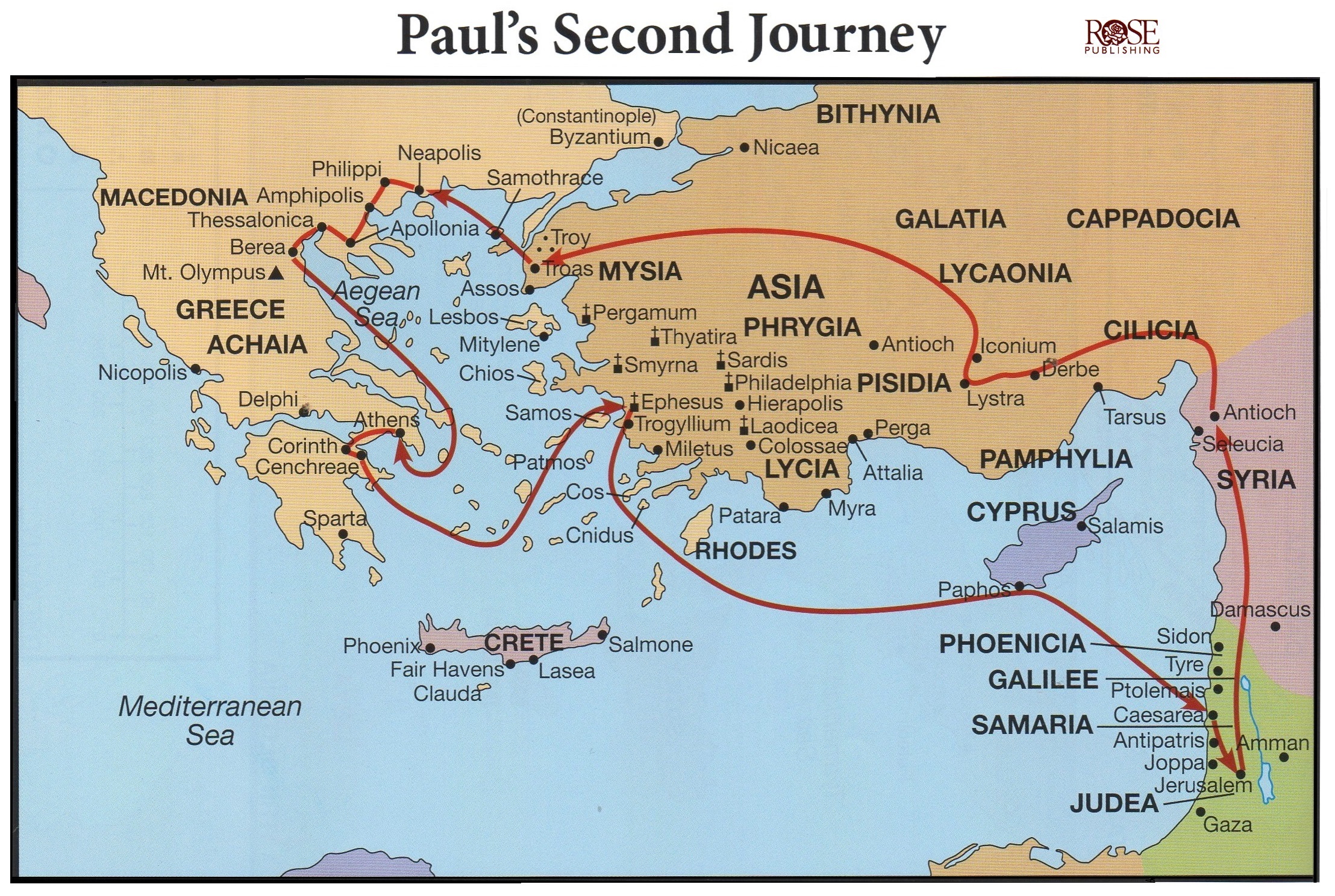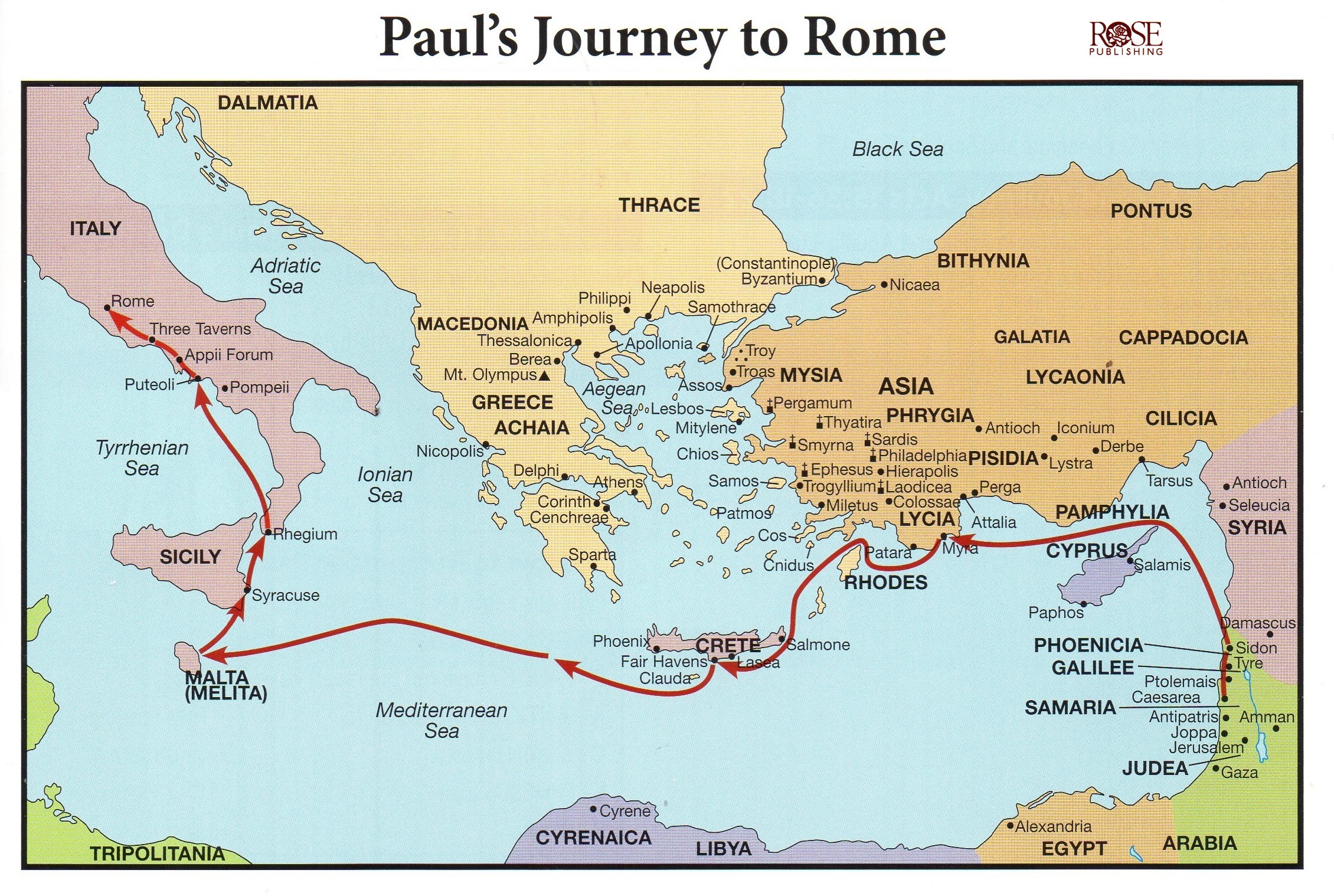In Acts 21:29 and again in 22:3, Saul stated he was born a Jew in Tarsus of Cilicia (a region of Turkey, then known as Asia Minor).
Saul of Tarsus persecuted Christians before Jesus appeared before him on the road to Damascus.
Saul was first mentioned during the stoning of Stephen - Acts 7:58; 8:1-3. In chapter 9, Saul was blinded on a trip to Damascus and Jesus spoke to him. Saul was cured by a Christ follower called Ananias, then Saul began preaching that Jesus was the Messiah.
Acts 11:25-30:
25. Then Barnabas went to Tarsus to look for Saul,
26. and when he found him, he brought him to Antioch. So for a whole year Barnabas and Saul met with the church and taught great numbers of people. The disciples were called Christians first at Antioch.
27. During this time some prophets came down from Jerusalem to Antioch.
28. One of them, named Agabus, stood up and through the Spirit predicted that a severe famine would spread over the entire Roman world. (This happened during the reign of Claudius.)
29. The disciples, each according to his ability, decided to provide help for the brothers living in Judea.
30. This they did, sending their gift to the elders by Barnabas and Saul.
Acts 12:24-25:
24. But the word of God continued to increase and spread.
25. When Barnabas and Saul had finished their mission, they returned from Jerusalem, taking with them John, also called Mark.
Acts 13:9 stated Saul was also known as Paul. Like the speech Stephen gave to the Sanhedrin, Paul summarized Israel's history in Acts 13 after a trip to Cyprus. Acts 13:21-22 also mentioned Saul who was king so the converted apostle became known as Paul.
Paul continued mission trips throughout Eurasia. In Acts 14, he traveled through Asia Minor then returned to Syria. In Acts 15, Paul and Barnabus were sent to Jerusalem, passing through Phoenicia and Samaria. While in Jerusalem, Paul argued that Gentiles should also be accepted as believers as well as those born Jews.

After a disagreement over John (Mark), Paul opted to take Silas on his next journey in Syria and back to Cilicia while Barnabus took Mark to Cyprus. Chapter 16 recorded Paul and Silas being joined by Timothy while spreading the good news in Asia Minor, moving on to Philippi (in the border region of Thrace and Macedonia). In the same chapter, Paul cast out a demon from a female psychic. When her "owners" realized they had just lost that income source, they had him imprisoned. When God caused an earthquake to free Paul and Silas, they didn't escape but chose to lead the jailer to Christ. They were set free on the condition they leave the town. In Chapter 17, Paul and Silas continued into Macedonia where they preached in Thessalonica and Berea. Some in Berea made accusations against Paul for trying to cause a rebellion. They took him to Athens while Silas and Timothy remained in Berea. After leaving Athens, Paul moved on to Corinth to form a church there Chapter 18. Silas and Timothy rejoined him there. Paul went back to Asia Minor to Ephesus, then back to the Syrian town of Antioch. After succeeding to lead many to Christ in Ephesus, Paul decided in Chapter 19 to visit Rome.


Chapter 20 stated Paul traveled from Macedonia and Greece, then along the coast of Asia Minor and back to Jerusalem. He was arrested after Jews from Asia Minor stirred up the crowd against him according to chapter 21. Paul defended himself before the Sanhedrin, stating he was a Roman citizen in chapter 22. After a plot to kill Paul was exposed, he was transfered to Caesarea (chapter 23). After a trial by Felix, Paul was jailed for 2 yrs. (chapter 24), presented before Judean king Agrippa and sent to Rome (chapters 25, 26).
In Acts 22 and again in Acts 26, Paul recapped when Jesus spoke with him as he witnessed to others to spread the message of hope in Jesus.
In chapter 27, Paul got shipwrecked on Malta, then finally reached Rome (chapter 28).

Romans 1 and 15 reiterated Paul's desire to present the case for Christ in Rome.
Paul began the epistles (letters to the churches) in 1 Corinthians. Corresponding with the Greek church in Corinth, his name was mentioned in chapters 1,
3, and 16.
In his second epistle, Pauls name appeared in chapters 1, 2,
6, 7, 10,
11 and 12.
His 3rd epistle was written to the Galatian church in the Asia Minor and his name appeared in Galatians 1, 2, 4 and 5.
Paul wrote to the Asia Minor church in Ephesians 1 and 3.
In the region bordering Macedonia and Thrace, Paul introduced himself to the church in Philippi in Philippians 1.
Yet another church Paul wrote to was Colosse in Asia Minor (Turkey). He appeared in that epistle in Colossians chapters 1, 2 and 4.
To the Macedonian church in Thessalonica, Paul made appearances in 1 Thessalonians 1, 2 and 3 as well as 2 Thessalonians 1 and 3.
Having traveled with Paul in Acts, the books of 1 & 2 Timothy mentioned Paul in 1 Timothy 1 and 6 and 2 Timothy 1, 3 and 4.
Three last chapters where we found Paul's name were Titus 1:1, Philemon 1 and 2 Peter 3:15.
Together, Paul and the other apostles spread the good news of Jesus to Europe and Asia as part of the "Great Commission" from Matthew 28:16-20 & Mark 16:15-20.